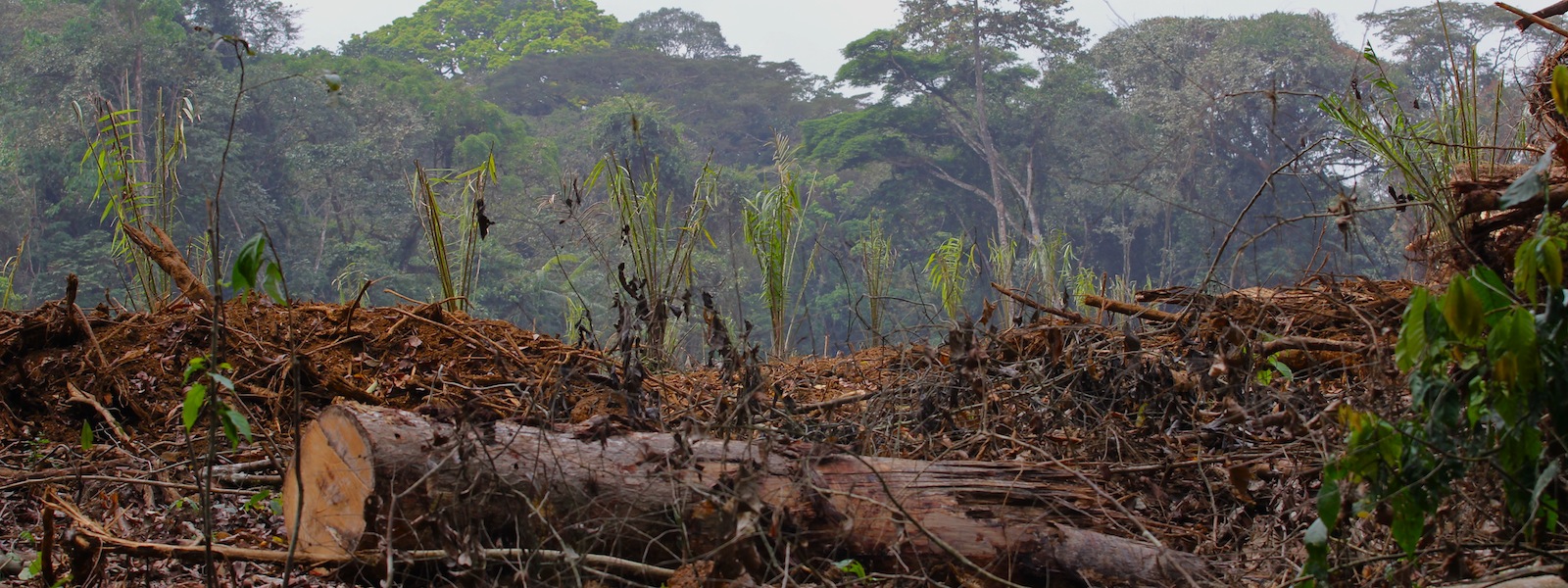There’s a rush on for land in the Congo Basin and palm oil is one of the main drivers of this investment boom.
Palm oil producers talk about global demand for palm oil and feeding the planet, but they wouldn’t be jostling for acreage if the potential profits weren’t so high.
Palm oil, generating US$ 20 billion-a-year in revenues, is the world’s most productive and most lucrative edible oil crop. In Malaysia, for example, palm oil plantations yield an average of 3.5 to 5 metric tons of oil annually. The current market price is hovering close to US$ 800 per ton.
In Africa, a combination extremely cheap land, low wages and tax breaks for foreign investors make palm oil an investor’s dream.
Here’s Gabon’s Agriculture Minister, Julien Nkoghe Bekale, speaking to Ventures Africa on the sidelines of the November 2012 UK-Gabon Investment Forum: “We have a large amount of available land and an attractive environment for investment … What we’re aiming to do is create an attractive framework, whether it be legislative, regulatory or fiscal, for investment. For agricultural enterprises we’re going to have tax exemptions on VAT, on customs and even on companies … At the moment palm oil prices are good, so obviously we will seek to export it rather than focus on local consumption.”
But in their race to the bottom to make themselves “attractive” to foreign investors, what are African governments gaining? Land leased for next to nothing. Produce and profits leaving the country. Little or no tax revenue. It’s really as crazy as it sounds.
The U.N. Special Rapporteur on the right to food, Olivier de Schutter, was in Cameroon in July 2012. At a press conference at the end of his mission, de Schutter addressed the problem of land “giveaways.” He stressed that Cameroon desperately needs better contract negotiations, negotiators and transparency. De Schutter said land prices are far too low and that contracts must be indexed to the price of resources. The benefits of investment must be equal or greater than the impacts, he said, also calling on the country to tax foreign investment properly. Today is not the 1980s, de Schutter said. Cameroon is in a position of strength and needs to leverage this.
De Schutter is hardly alone in his assessment. Dr. Mthuli Ncube is the Chief Economist and Vice President of the African Development Bank and is obviously a champion of investment. But in his article, A Global Rush for Africa’s Land: Risks and Opportunities, Mthuli Ncube writes that, “below market level land fees have characterized most land deals in Africa,” seriously undermining their value for host countries.
He continues: “Recently documented cases indicate land fees have ranged between US$4.8 to US$7.1 per hectare in Sudan against US$300 per hectare in Peru. Details of large-scale land leases are often concealed especially in host countries with a poor record of transparency and accountability. In the Democratic Republic of Congo, close to 50% of arable land is either leased to foreign companies or is under negotiation for leasing, without a clearly defined framework governing these transactions. Some of the land acquisitions are held for speculative purposes given the sketchy details of implied investments (after acquisition) and the low land fees, which make secondary land transfers very lucrative….
“Thus, to obtain value from recent surge in land acquisition, African governments need to undertake institutional reforms that foster accountability, proper valuation of land, and social and environmental sustainability of investments.”
Mthuli Ncube suggests land auction systems as one possible measure to increase investment value: “Land fees in many African countries, for comparable grades of land, are significantly lower than other developing regions of the world. For instance, land lease per hectare in India’s Punjab Doaba region is estimated to be more than 50 times the average land lease in Africa. Land auctions serve the twin advantage of setting prices right and promoting transparency of land deals. Peru’s competitive land auction system is often cited as a global best practice in stipulating strong terms of ‘commitment of investment’. Thus, mechanisms that discourage speculative land acquisitions should be fostered in Africa’s land markets.”
Further information
Read the full report of the U.N. Special Rapporteur’s mission to Cameroon here.
Read more on the palm oil investment from the Financial Times here.
Read Dr. Mthuli Ncube’s full article here.

